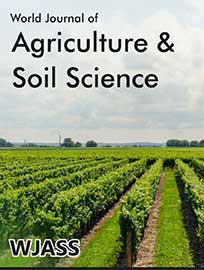 Review Article
Review Article
Increase in The Use of Organic Fertilizers as Complements to Inorganic Fertilizers in Maintenance of Soil Fertility and Environmental Sustainability
Joseph Xorse Kugbe*, Wuni Mawiya, Alhassan Mohammed Hafiz and Charles Maganoba
Department of Agronomy, University for Development Studies, Tamale, Ghana
Corresponding AuthorJoseph Xorse Kugbe, Department of Agronomy, University for Development Studies, Tamale, Ghana.
Received Date: December 02, 2019; Published Date: December 11, 2019
Abstract
Soil fertility can be considered in different ways, depending on land use. In intensively managed cropping systems, soil fertility can be defined in terms of the temporal value of products produced relative to inputs used, including the economic aspects of nutrient budgeting. For environmentally sustainable soil productivity, an integral use of both organic and inorganic fertilizer to ensure adequate supply of plant nutrients and sustain maximum crop yield and profitability is advocated. However, inorganic fertilizer is expensive and largely unaffordable to the resource-poor farmers found mostly across sub sahara Africa. Being readily available as a cheap source of nutrients, organic inputs, including poultry manure should complement inorganic fertilizers. Organic fertilizers supply the essential macro- and micro-nutrient elements to plants, as well as improve soil physico-chemical conditions for better crop growth and yield.
Keywords: Integrated soil fertility management; Crop production; Organic fertilizer; Inorganic fertilizer
-
Joseph Xorse Kugbe, Wuni Mawiya, Alhassan Mohammed Hafiz, Charles Maganoba. Increase in The Use of Organic Fertilizers as Complements to Inorganic Fertilizers in Maintenance of Soil Fertility and Environmental Sustainability. World J Agri & Soil Sci. 4(1): 2019. WJASS.MS.ID.000577.
-

This work is licensed under a Creative Commons Attribution-NonCommercial 4.0 International License.






